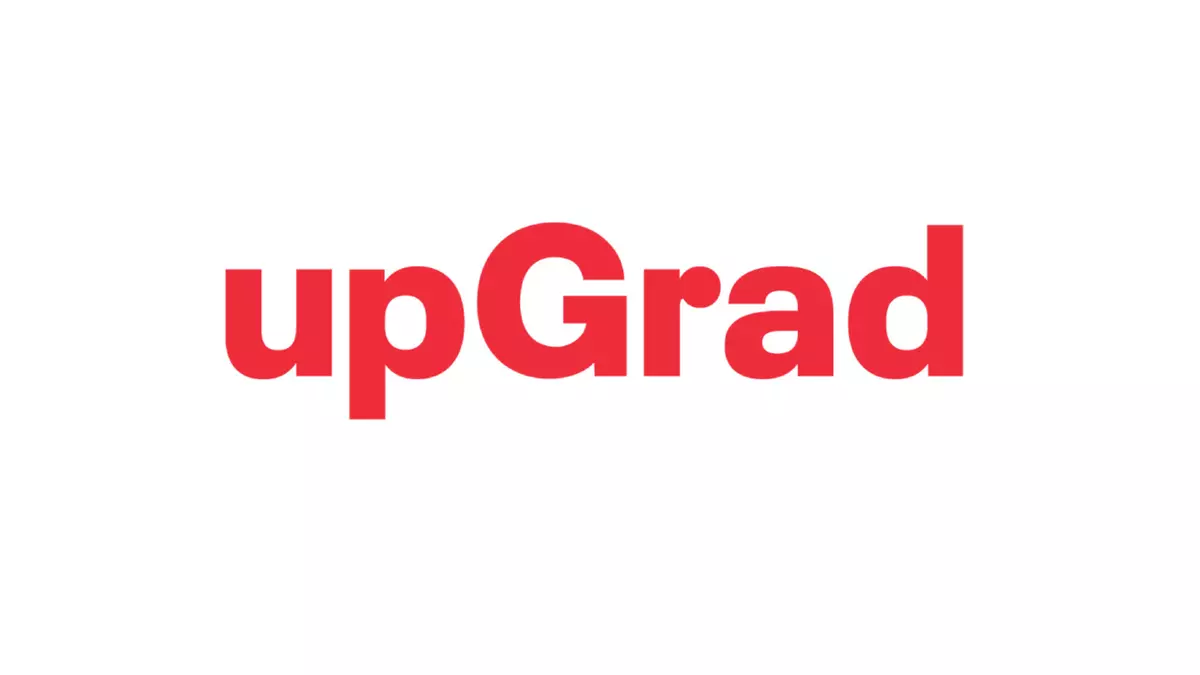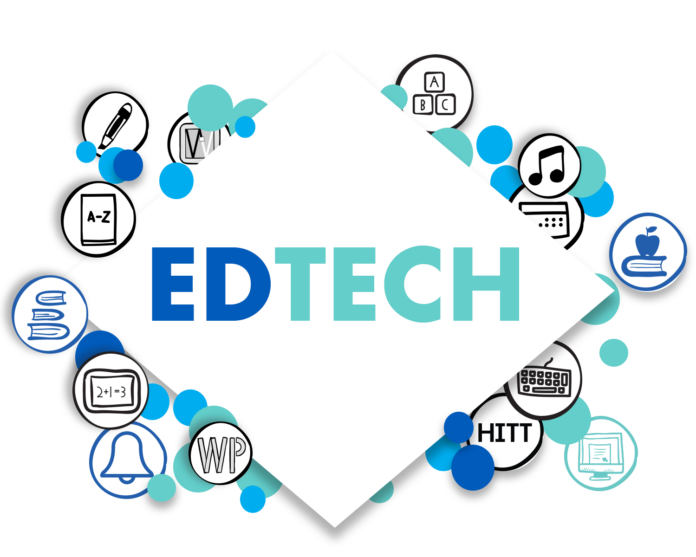Top 10 Best EdTech Companies in India 2023

EdTech, short for Education Technology, is a term that refers to software and technology designed to enhance teacher-led learning and improve student outcomes. EdTech companies, therefore, are organizations that create, market, and sell these kinds of technology-based educational products and services.
These companies typically focus on developing platforms, applications, and tools that cater to the educational sector’s unique needs. This can range from K-12 education, higher education, and corporate training to lifelong learning.
Some common examples of EdTech products include:
Learning Management Systems (LMS): These platforms allow teachers to organize course materials, distribute assignments, track student progress, and facilitate online learning. Examples of LMS are Moodle, Blackboard, and Canvas.
Student Information Systems (SIS): These systems manage student data, including grades, attendance, and other relevant information. PowerSchool and Infinite Campus are examples of this.
Adaptive Learning Platforms: These platforms provide personalized learning experiences to students based on their strengths, weaknesses, and pace of learning. DreamBox and Knewton are examples.
Virtual Reality/Augmented Reality tools for education: These tools provide immersive learning experiences for students. Companies like Google Expeditions and zSpace are leading the way in this space.
Educational Apps and Games: These applications make learning interactive and engaging for students. Examples include Duolingo for language learning and Prodigy for math.
Massive Open Online Courses (MOOCs): These platforms offer online courses, often for free, available for anyone around the world. Examples include Coursera, edX, and Udacity.
Video Conferencing Tools for Online Learning: With the rise of remote learning, tools that enable video conferencing and virtual classrooms have become vital. Examples include Zoom and Google Meet.
EdTech for Special Needs: There are also companies focused on creating tech solutions for students with special needs, like Read&Write and Ghotit.
Professional Development and Training Platforms: For corporate training and upskilling, there are platforms like LinkedIn Learning and Coursera for Business.
Why EdTech Companies are important

EdTech companies play a significant role in the contemporary educational landscape for several reasons:
Enhancing Learning Experience: EdTech companies provide innovative tools and platforms that can make learning more engaging and interactive. Through games, interactive lessons, virtual reality, and more, students can gain a deeper understanding of complex concepts.
Personalization: Adaptive learning technologies allow for a personalized learning experience, tailoring education to individual needs, abilities, and learning styles. This could be beneficial for students who may not thrive in a traditional “one-size-fits-all” learning environment.
Accessibility: EdTech makes education more accessible to a wider audience. It can break down geographic barriers with online courses and learning platforms, allowing students in remote areas or with mobility challenges to access high-quality education. It also provides assistive technologies for students with disabilities.
Efficiency: EdTech tools can streamline administrative tasks and increase efficiency in education management. For instance, Learning Management Systems (LMS) can automate grading, attendance tracking, and other administrative tasks, freeing up educators’ time to focus more on instruction and student interaction.
Professional Development: EdTech offers avenues for continuous learning and professional development for teachers and working professionals. With online courses and certification programs, professionals can acquire new skills and qualifications at their own pace.
Data-Driven Insights: With EdTech, educators can track students’ progress in real-time, identify gaps in understanding, and adjust their teaching methods accordingly. The data provided can be used to enhance teaching strategies and improve student outcomes.
Preparation for the Future: As we move towards a more digital future, familiarity with technology becomes increasingly important. Incorporating technology into education prepares students for future workplaces, which will likely rely heavily on digital tools and competencies.
Scalability: EdTech allows for the possibility of scaling educational initiatives to a larger audience. One instructor can reach thousands of learners via an online course, thus making high-quality education available to many more students.
Response to Pandemic: The importance of EdTech companies was particularly highlighted during the COVID-19 pandemic, where the majority of educational institutions had to shift to remote learning almost overnight. EdTech companies provided the necessary tools and platforms to make this transition possible, ensuring continuity in education during the crisis.
History of EdTech Companies in India
The history of EdTech companies in India reflects a growing trend of digitalization in the education sector. While EdTech is a relatively new field globally, India has seen substantial growth in this sector over the past decade or so. Here’s a brief look at the history and evolution of EdTech companies in India:
Early 2000s – Introduction of EdTech: The early 2000s saw the beginning of the EdTech revolution in India. Companies like Educomp Solutions, founded in 1994, started digitalizing education by introducing smart classes to schools across India. These solutions mostly involved providing multimedia content to make learning more interactive and engaging. However, the reach of such solutions was largely limited to urban areas.
Late 2000s and early 2010s – Growth and Diversification: During this period, the EdTech sector began to diversify. The growth of internet access and the proliferation of smartphones opened up new opportunities. Platforms like Byju’s (founded in 2011) began to offer online learning solutions. Initially, Byju’s was an offline coaching center which later transformed into an online learning app, which became popular for its interactive lessons for competitive exam preparations and school curriculums.
Mid-2010s – Rise of Online Courses and Learning Apps: This period saw the rise of online course platforms and learning apps. Companies like Unacademy (founded in 2015) and Vedantu (founded in 2011) offered online tutoring and preparation for competitive exams, giving students access to high-quality teaching regardless of location. Platforms like Coursera and edX also gained popularity for offering Massive Open Online Courses (MOOCs) from universities worldwide.
Late 2010s to Present – Expansion and Global Recognition: As of the late 2010s and into the 2020s, Indian EdTech companies have seen substantial expansion and have started gaining global recognition. Companies like Byju’s have become unicorns (startups valued over $1 billion) and have started expanding globally. Furthermore, with the COVID-19 pandemic forcing schools and universities to shift to online teaching, the demand for EdTech solutions has skyrocketed.
Future – Continued Growth and Innovation: The future of EdTech in India looks promising. With increasing internet penetration and smartphone usage, along with supportive government initiatives like the Digital India campaign, the sector is poised for further growth. Emerging trends include adaptive learning, personalized learning experiences, AI in education, coding for kids, and upskilling/reskilling platforms.
While there has been significant progress, there are still challenges that need to be addressed, including the digital divide, quality, and accreditation of online courses, and ensuring that technology complements rather than replaces traditional teaching methods. However, the potential of EdTech in transforming education in India is vast and undeniable.
Benefits of EdTech Companies

EdTech companies bring numerous benefits to the field of education for students, teachers, administrators, and the broader society. Here are a few key benefits:
Improved Student Engagement: EdTech companies develop products that make learning interactive and fun. Using games, animations, and interactive activities can help increase student engagement, leading to better understanding and retention of the material.
Personalized Learning: EdTech platforms often use adaptive learning technologies that personalize education based on individual student’s needs, abilities, and learning pace. This helps address gaps in learning and improve outcomes.
Accessibility: Through online learning platforms and resources, education becomes accessible to anyone, anywhere, as long as they have an internet connection. This significantly widens access to educational opportunities, particularly for those in remote areas or those who cannot attend traditional schools due to various reasons.
Collaboration: Many EdTech tools promote collaboration among students, fostering teamwork and communication skills. They also facilitate teacher-student and teacher-parent communication, enabling real-time feedback and close monitoring of student progress.
Efficiency and Productivity: EdTech can automate many administrative tasks such as grading, attendance tracking, and reporting, making it easier for teachers to manage their classrooms and devote more time to instruction. For students, technology can help organize study materials, set schedules, and remind them of deadlines, enhancing their productivity.
Data-Driven Decision Making: EdTech tools can collect and analyze data on student performance, helping teachers identify where students are struggling and adjust their teaching methods accordingly. This real-time insight allows for more informed and effective teaching strategies.
Professional Development: EdTech provides continuous learning and professional development opportunities for educators and professionals. They can learn new strategies, stay updated on best practices, and even earn certifications or degrees online.
Preparation for the Future: EdTech helps students become comfortable with technology, an essential skill in today’s digital age. Coding classes, digital literacy, and other tech-focused subjects prepare students for future careers.
Scalability: EdTech enables scalability in education. Massive Open Online Courses (MOOCs), for instance, can be taken by thousands of students simultaneously, thereby making quality education accessible to a larger audience.
Cost-Efficiency: Digital resources and online platforms often reduce the need for physical materials, making education more cost-efficient in many cases.
Best EdTech Companies in India
![Top 100 EdTech Companies in India: 2023 [Updated]](https://hh-certificates.sgp1.digitaloceanspaces.com/blog/wp-content/uploads/2022/08/07111437/blog66.jpg)
BYJU’S
Unacademy
Vedantu
Toppr
Doubtnut
Embibe
Gradeup
UpGrad
Simplilearn
Cuemath
BYJU’S

BYJU is one of the leading EdTech companies in India and globally. It was founded in 2011 by Byju Raveendran and Divya Gokulnath.
The main product of BYJU’S is a learning app named BYJU’S-The Learning App. It provides educational content for students from primary to higher secondary level and even for competitive exams. The content is offered in the form of engaging and interactive videos, quizzes, and practice tests.
Subjects covered by the app include Mathematics, Physics, Chemistry, Biology, and English, with content aligned to NCERT and other major curriculum boards. In addition to school curriculum subjects, BYJU also offers preparation modules for exams like JEE, NEET, CAT, IAS, GRE, and GMAT.
BYJU uses advanced data analytics to provide personalized feedback and recommendations to students, helping them learn at their own pace and style. The app tracks a student’s progress, identifies gaps in learning, and recommends specific modules to improve performance in these areas.
Over the years, BYJU’S has grown substantially and has made several acquisitions, including U.S.-based Osmo, a company specializing in blended learning, and Aakash Educational Services, a prominent player in test prep services in India. BYJU’S also ventured into the online coding classes for kids by acquiring WhiteHat Jr.
BYJU is one of the most valuable EdTech companies in the world. The COVID-19 pandemic, which led to a massive shift towards online learning, has further accelerated the company’s growth.
Unacademy

Unacademy is one of India’s largest learning platforms, founded in 2015 by Gaurav Munjal, Roman Saini, and Hemesh Singh.
The platform started as a YouTube channel by Gaurav Munjal in 2010, and it has since evolved into a comprehensive learning platform. The original aim was to create free educational content and democratize access to knowledge.
Unacademy allows educators to create courses on various subjects, making education accessible for students preparing for different competitive examinations. These include Civil Services Examination (IAS), Engineering Services Examination (ESE), National Defence Academy Examination (NDA), Common Admission Test (CAT), Joint Entrance Examination (JEE), National Eligibility and Entrance Test (NEET), and more. Unacademy also provides courses for the school curriculum (from classes 6-12) and language and programming courses.
In the Unacademy learning app, students can attend live classes, take quizzes, and engage in discussions. They can also use the “Ask a Doubt” feature, where they can post a question and get it answered by the Unacademy community.
Unacademy has followed a robust growth strategy and has made several acquisitions to diversify its offerings. These include Kreatryx, PrepLadder, Coursavy, Mastree, and more.
Unacademy has been considered one of the unicorns in the Indian start-up ecosystem. However, it is always advisable to check the most recent and relevant sources as the status and offerings of the company may have changed.
Vedantu

Vedantu is a pioneering EdTech company based in India that focuses on providing personalized online tutoring. The name “Vedantu” is formed from two Sanskrit words, “Veda” (knowledge) and “Tantu” (network), reflecting its mission to create a network of knowledge.
Vedantu was founded in 2011 by four IITians: Vamsi Krishna, Pulkit Jain, Saurabh Saxena, and Anand Prakash. The platform is designed to offer real-time, one-to-one teaching to learners, using a technology called WAVE (Whiteboard Audio Video Environment), a built-in interactive whiteboard that uses audio, video, and writing to enable teacher-student interaction.
Vedantu provides a wide range of services, from tutoring for CBSE and ICSE board preparation to competitive exam coaching (JEE, NEET), co-curricular courses, and even early childhood courses. Its course catalog covers students from grade 6 to grade 12, along with courses for competitive exams.
One of Vedantu’s unique features is its attention to detailed, personalized feedback. Teachers provide individualized notes on student performance, with suggestions for areas to improve.
Vedantu also has a feature called “Vedantu Improvement Promise,” where they promise to improve the academic performance of students, and if they don’t see an improvement, they pledge to refund the course fee (subject to certain terms and conditions).
Vedantu has established itself as a significant player in the Indian EdTech scene and has made a mark with its unique live tutoring model. However, for the most recent updates, it’s recommended to check the latest resources as the company’s status and offerings may have changed.
Toppr

Toppr is a prominent EdTech company in India that focuses on the K-12 segment. The company was founded in 2013 by Zishaan Hayath and Hemanth Goteti with the aim of creating a comprehensive after-school learning platform for students.
Toppr provides a personalized learning app for students in various classes, from class 5 to class 12, and also caters to those preparing for various competitive exams. The primary services offered by Toppr include:
Learn: This is the basic package that offers video lectures, stories, and concepts for learners.
School OS: This is a school operating system for school administrators and teachers to track student performance, manage curriculum and schedule, and communicate with parents and students.
Doubts: This feature allows students to ask questions and get them answered 24×7.
Test: This service offers adaptive practice tests to help students prepare for exams.
Live Classes: Toppr also offers live classes for various grades and subjects.
The platform uses artificial intelligence and machine learning to adapt to each student’s unique learning style, thereby providing a personalized learning experience. It offers comprehensive study materials, video lectures, practice questions, and doubt-solving, making it a one-stop solution for students’ learning needs.
By identifying a student’s strengths and areas of improvement, Toppr helps students learn effectively and efficiently, promoting better academic outcomes.
Toppr has emerged as one of the leading platforms in the Indian EdTech industry. Please check the most recent and relevant sources for updates, as the status and offerings of the company may have changed after my last training data.
Doubtnut

Doubtnut is an EdTech startup based in India that provides an online learning platform primarily for K12 students and for those preparing for various competitive examinations. Founded by Tanushree Nagori and Aditya Shankar in 2016, Doubtnut has made a name for itself with its unique multi-language online learning platform.
Doubtnut’s unique selling point is its doubt-clearing service that works through an app. The user takes a picture of a problem and uploads it to the app. Doubtnut’s AI algorithms then recognize the problem and provide a step-by-step video solution. The solutions are available in multiple languages, which adds to the platform’s accessibility.
Subjects covered on the Doubtnut app include Mathematics, Physics, Chemistry, and Biology. The platform also provides learning material and resources for competitive exams like JEE Mains, JEE Advanced, NEET, and more.
The ability of Doubtnut to deliver solutions in various vernacular languages, in addition to English and Hindi, sets it apart from many of its competitors. This makes the platform particularly appealing to students in areas where English is not the primary language of instruction.
Doubtnut’s vision is to make quality education accessible to all, and it is leveraging AI technology to achieve this goal.
Doubtnut continues to be one of the promising EdTech startups in India. However, for the most accurate and recent updates, it is recommended to visit their official website or relevant sources.
Embibe

Embibe is an EdTech company based in India that uses data analytics and artificial intelligence to enhance personalized learning experiences. The company was founded by Aditi Avasthi in 2012 with the vision to scientifically improve individual learning outcomes in the field of education.
Embibe’s platform is designed for students preparing for various competitive exams in India, like JEE Main, JEE Advanced, NEET, AIIMS, BITSAT, and more. They also provide study material for students from 8th to 12th grade for their school exams.
One of the unique features of Embibe is its use of artificial intelligence to provide personalized feedback and learning paths. The platform analyzes students’ performance and identifies their weak areas – this could include specific concepts, time management, or question selection strategy, among others. Based on this analysis, Embibe gives the students personalized recommendations to improve their performance.
Embibe’s “Knowledge Tree” is another distinctive feature – it’s a visual map of how different concepts in a syllabus are interlinked, providing students with an understanding of the broader context and importance of each concept.
Embibe was acquired by the Indian conglomerate Reliance Industries in 2018, a testament to its success and potential in the Indian EdTech market.
Embibe continues to be a unique player in the EdTech market due to its focus on AI-driven personalized education. However, for the most recent updates, it’s recommended to check the latest resources as the company’s status and offerings may have changed.
Gradeup

Gradeup is an Indian EdTech company that specializes in exam preparation. The company was founded in 2015 by Shobhit Bhatnagar, Vibhu Bhushan, and Sanjeev Kumar, aiming to provide an online platform that can help students prepare effectively for various competitive examinations.
Gradeup offers a variety of services, including live classes, mock tests, quizzes, and doubt-clearing sessions. The platform covers a wide range of exams including Banking & Insurance exams, SSC & Railway exams, UPSC & State Services exams, GATE & Engineering exams, Teaching exams, Defence exams, NET exams, and more.
One of Gradeup’s unique features is its community-based learning approach. It allows students to connect and interact with other aspirants, fostering a competitive yet collaborative learning environment.
Gradeup’s “Green Card” is a special offering that provides unlimited access to all the mock tests available on the platform for a particular exam category. This feature allows students to practice extensively and understand the pattern of the examination.
As part of its comprehensive solution for competitive exams, Gradeup also provides updates on exam notifications, syllabus, exam pattern details, cut-offs, and more.
Gradeup has established itself as a significant player in India’s EdTech industry, particularly in the competitive exams segment. However, for the most up-to-date and accurate information, please refer to the latest resources as the company’s status and offerings may have evolved.
UpGrad

upGrad is an online higher education platform providing rigorous industry-relevant programs designed and delivered in collaboration with world-class faculty and industry. Merging the latest technology, pedagogy, and services, upgrade is creating an immersive learning experience for the digital world.
Founded in 2015 by Ronnie Screwvala, Mayank Kumar, Phalgun Kompalli, and Ravijot Chugh, upGrad has introduced a new model of lifelong learning. It offers programs in the areas of Data Science, Technology, Management, Marketing, and more.
Here are some key features of upGrad:
Industry relevance: upgrade collaborates with universities and industry professionals to develop a curriculum that is aligned with job market demands.
Online Learning: upGrad’s learning experience includes interactive lectures, live doubt-clearing sessions, assignments, and industry projects.
Mentorship: Each learner is assigned with a dedicated mentor who guides them throughout the course and helps them navigate career paths.
Career support: upgrade provides extensive career support, including job placement assistance, mock interviews, resume-building workshops, and more.
Networking: Learners get to interact with a large peer group, attend live lectures and participate in group assignments, which helps them build a strong network.
Upgrade has helped thousands of learners enhance their skills and achieve career advancement. However, it is always advisable to check the most recent and relevant sources as the status and offerings of the company may have changed.
Simplilearn

Simplilearn is an Indian EdTech company based in San Francisco, California, and Bangalore, India, that offers online training and professional certification courses. It was founded in 2009 by Krishna Kumar.
Simplilearn provides over 400 training courses in disciplines such as Cyber Security, Cloud Computing, Project Management, Digital Marketing, Data Science, and other emerging technologies. These courses are offered in collaboration with leading certification bodies and universities.
The platform uses a blended learning approach. This approach combines online classes, instructor-led live virtual classrooms, project work, and 24/7 teaching assistance. The course content is delivered by industry experts and designed to give learners a practical understanding of the subject.
Another unique feature of Simplilearn is the access to a community of learners. This interactive community, made up of professionals and experts, helps to enhance the learning experience. This makes the platform particularly appealing to professionals who are looking to upskill and gain certification in their respective fields.
Simplilearn has trained over a million professionals and companies across 150+ countries. Given the increasing importance of upskilling and reskilling in today’s rapidly changing job market, platforms like Simplilearn play a crucial role.
However, please check the most recent and relevant sources for updates, as the status and offerings of the company may have changed after my last training data.
Cuemath

Cuemath is an EdTech company based in India that focuses on improving the math learning experience for children. The company was founded by Manan Khurma in 2013.
Cuemath offers a program which is designed to help students in grades K-10 understand and master mathematics. The program emphasizes problem-solving skills and mathematical thinking rather than rote memorization. The curriculum is aligned with school boards like CBSE, ICSE, and state boards.
The main components of Cuemath’s program include:
Workbook Practice: Customized workbooks for students to practice problems.
Tab-based Exercises: Interactive puzzles and games on the Cuemath app to develop logical reasoning skills.
Math Box: A set of physical learning tools to help visualize and understand abstract math concepts.
Live Classes: Led by certified Cuemath teachers, these classes are conducted online and involve interactive discussions.
Cuemath’s unique approach is to help students understand the ‘why’ behind the ‘what’ of math concepts. This method aims to help students overcome their fear of math and develop a love for the subject.
Cuemath has been delivering its program to students not only in India but also in other countries, including the UK, USA, UAE, Singapore, Canada, Nigeria, Ghana, and more.
However, for the most accurate and recent updates, it is recommended to visit their official website or relevant sources, as the company’s status and offerings may have changed.

